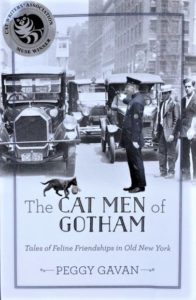
An unnamed, heroic stray cat and a mischievous mouse played a prominent role in a fire that forced a dozen families from the brick double apartment at 561-565 49th Street (present-day Sunset Park neighborhood) on December 4, 1908.
According to the Brooklyn Daily Eagle, the fire began in a wardrobe in the apartment of Mr. and Mrs. Aaron Platt sometime around midnight. Most of the families in the four-story building were probably asleep at the time.
Mrs. John Duffy and her three children were in their apartment on the ground level when the fire started. Unaware of the danger lurking upstairs, Mrs. Duffy was quite alarmed when a stray cat bounded into the room through an open window.
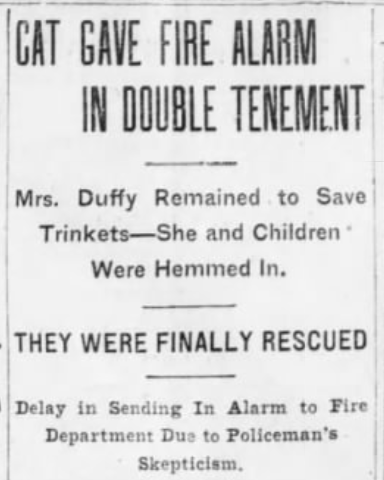
At first, she didn’t know what to make of the cat. It ran around the room in circles and scampered about under the table and chairs. When the children attempted to drive the cat out, it leaped into Mrs. Duffy’s lap and would not leave. Mrs. Duffy didn’t know it yet, but the cat was sounding an alarm.
Frightened by the cat’s antics, Mrs. Duffy ran out into the hall with the cat still clinging to her dress. As she reached the hall, nine-year-old Charlie Platt came rushing down the stairs, crying that his room was on fire and that his father and mother were still up there trying to beat out the flames.
As soon as the boy opened the hall door, the cat bolted outside. His work was done here.
Mrs. Duffy warned the family in the adjoining rooms on her floor and then ran back into her apartment to gather up a few belongings.
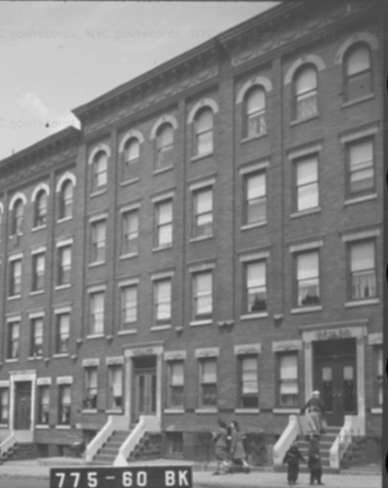
Unfortunately, it took the fire department longer than usual to reach the scene. The patrolman on post reportedly refused to believe young Charlie Platt’s story at first, and it took a while for the boy to convince him that he was telling the truth.
The flames spread rapidly, extending to the apartment of Mrs. Augusta Benka on the second floor of 565 49th Street. This shut off all means of escape for a dozen families on the floors above, forcing them to climb out on the roof and make their way to a hatchway of a house about a half black away. Mrs. J. F. Sullivan and her daughter May and son Donald, Mrs. Rhind, Mrs. Connolly, Mrs. F.A. Fery, Mr. and Mrs. Platt, Mrs. Benka, and others made this rooftop escape.
While the firemen were busy upstairs with the fire, Thomas Mudridge, who lived across the street, heard that Mrs. Duffy and her three children were still in their apartment. Unable to get in through the front door, he climbed into the apartment through a fire escape.
Mrs. Duffy was in a state of frozen terror as her children huddled around her. Mudridge lead them from the bedroom and rushed them through the burning hallway to the street.
According to the Brooklyn Daily Eagle, it was thought that the fire was caused by a mouse that had gnawed the tips of matches left inside a coat in the Platt’s wardrobe. The total damage was valued at $2,000.
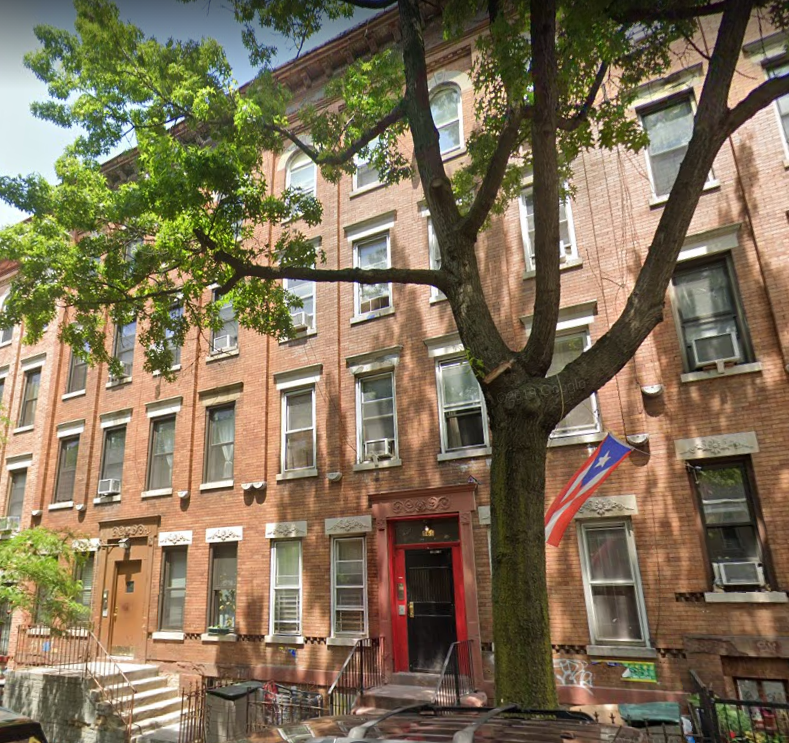
A Brief History of Sunset Park
The Sunset Park neighborhood stretches from Green-Wood Cemetery to Bay Ridge, and from the Brooklyn shoreline to Borough Park. Formerly known as Gowanus and later as South Brooklyn, Sunset Park adopted its name during the 1960s after a local park of the same name that offers terrific views of Manhattan during sunset hours.
In the 18th and early 19th centuries, Sunset Park was mostly owned by the Bergen family, whose origins in America trace back to Hans Hansen Bergen, a Norwegian ship carpenter who emigrated to New Netherland in 1663 in a company with the colony’s fifth Director-General, Wouter van Twiller.
Bergen was married to Sarah Rapelje, the first female child of European parentage born in the colony of New Netherland. Although Hans and Sarah never lived in Brooklyn, their descendants owned two large homesteads along its waterfront: the DeHart-Bergen House near 39th Street and Third Avenue and the Johannes Bergen House near 55th Street.
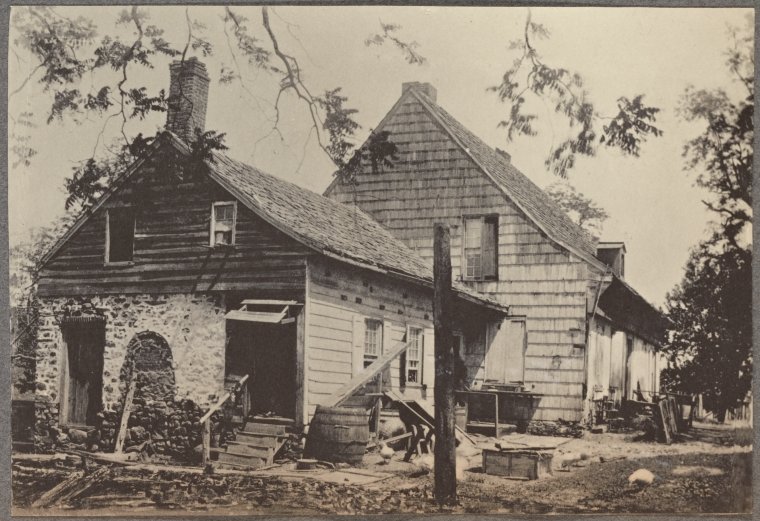
By 1825, as shown in the map below, the Bergens owned all that part of Brooklyn from 31st Street to what was then the Brooklyn City line at Bay Ridge, and from New York Bay to the patent line at New Utrecht.

The land upon which this heroic cat story took place (49th Street) was once part of a 120-acre farm owned by Martenus and Maria Bergen (the farm extended from 48th to 52nd Streets). This land had previously been owned by the Van Pelt family, who owned farmland in Gowanus and New Utrecht. Wouter Van Pelt conveyed the Gowanus land to Peter Bergen, who in turn divided it between his sons Martenus and Peter.
Following his father’s death in 1844, Martenus sold his land as part of a larger parcel to Thomas Hunt, a millionaire with ties to the Brooklyn City Railroad who held contracts for the grading and paving of Brooklyn’s streets.

Hunt, who owned a house in Brooklyn Heights at 102 Remsen Street, built a country seat on the old Bergen farmland at 49th Street and Third Avenue. This home was destroyed in a fire in August 1866.
Thomas Hunt went on to become one of the largest real estate holders in the city. Following his death in 1878, much of his land was sold for development.
P.S. 2: The Bergen School of Sunset Park
Although I could not find any early photos or illustrations of 49th Street, I did find an old illustration along with some interesting history about one of Brooklyn’s very first schools. Now called P.S. 1 The Bergen in Sunset Park, the school–Brooklyn’s fifth school–dates back to the pre-Revolutionary era on the Bergen farm.
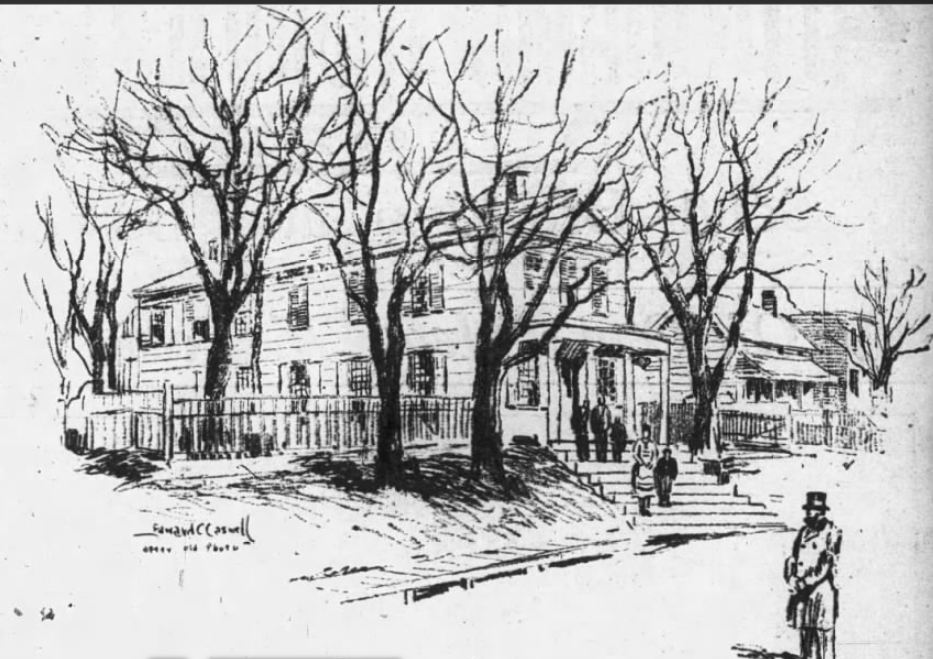
According to published reports, prior to the Revolution, children of the Gowanus district attended school in the dwelling houses on the Bergen farms. During the Revolution, a log school house was built on the Bergen farm lane west of the junction at present-day Third Avenue and 44th Street.
In 1797, the log building was replaced with a frame building, which became P.S. No. 2 in 1810. (The school’s first teacher, Michael Hogan, reportedly slit his own throat after a female student refused his advances and marriage proposal.)
In 1846, a two-story, two-room school was erected on 47th Street near Third Avenue. Four rooms were added in 1865 and 24 classrooms were added in 1875; another 12 classrooms were added in 1896.
The Board of Education added “Bergen School” to the school’s name in 1915, making it P.S. 2 The Bergen School. Today, the Sunset Park school is called P.S. 1 The Bergen, and it serves children in Pre-K through 5th grade.

